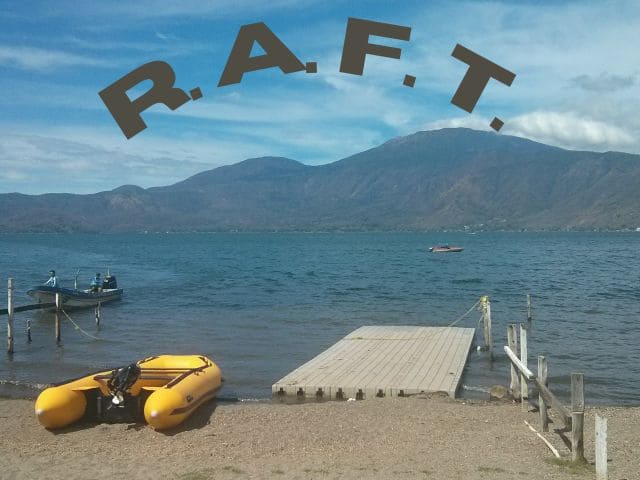A topic that comes up again and again when I work with writing students is the importance of thinking before writing.
When I was a kid, my mom often reminded me to “think before you speak.” This was mostly so I wouldn’t regret what I said or hurt others’ feelings. (My nickname was “Sassy Lynn” after all!).
However, it’s still good practice as an adult to think ahead and try to anticipate how the person you’re writing or speaking to may understand your intended message.
I teach my students the acronym R.A.F.T as part of writing pre-planning. If you practice asking yourself these questions before you sit down to write a letter, essay, or speech, you’ll begin to internalize them so that they become an automatic part of YOUR planning process.
R.A.F.T. – Role, Audience, Format, Thesis
Role:
- What’s your role in relation to this message?
- Are you a guide, leading your reader somewhere?
- Are you trying to persuade people to do something?
- Are you an expert or a participant in learning?
- Are you asking questions or giving directions?
Audience:
- Who is in your “boat”?
- What does your audience already know?
- What do they need to know?
- What do you want them to do?
Format:
- What type of writing is best for your audience?
- What kind of a “boat” best conveys your message: an email, report, letter, Slack message, shared doc?
- How will you structure your ideas so that they support your readers on their journey?
Thesis:
- What’s your main idea or purpose?
- In which direction are you heading?
- What’s your final destination?
My Top Tip for Writing a Thesis
- Write a draft thesis as a “map” for yourself. Your thesis should directly answer the question or prompt.
- Create a guiding question for yourself beginning with “why” or “how” from your draft thesis.
- When you start to get lost or go off-topic, ask yourself your guiding question.
Example: You are trying to persuade a scholarship committee to award you money.
- Your draft thesis is: “You should give me money for a Master’s degree.”
- The question to ask yourself is: “Why should they give me money?”
- Use your question to help you structure your writing: give reasons (supported by strong examples) why the committee ought to help you.
Your draft thesis and guiding questions are part of your process, so they don’t need to be pretty; they’re just to help guide you.
Use them as tools to help you build your writing structure, just like RAFT helps you plan before your writing journey.
Bon voyage! Gute Reise! Buen viaje!
Enjoy the journey!

